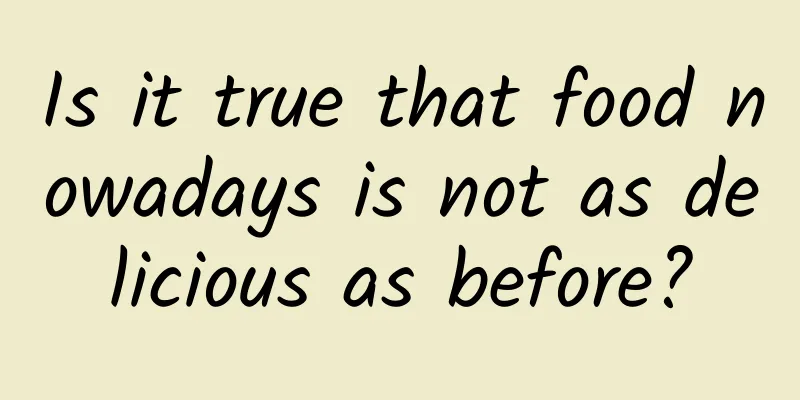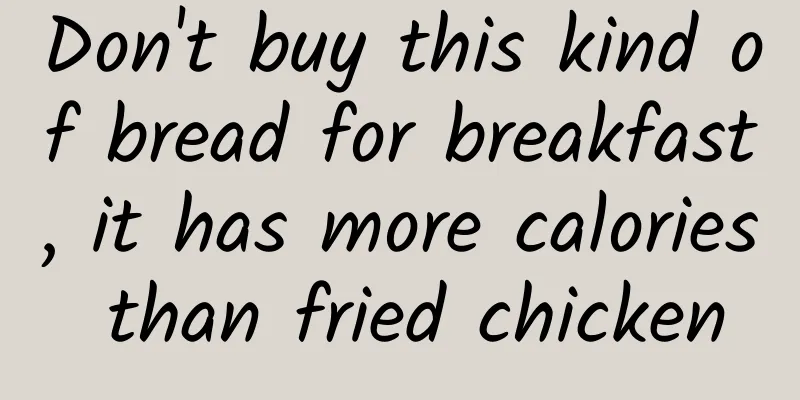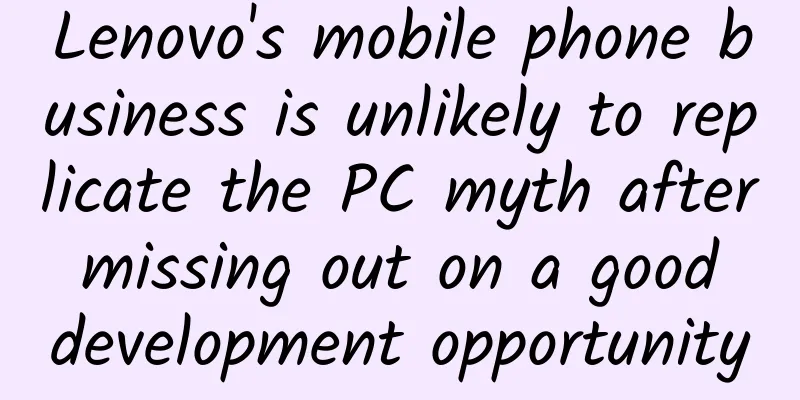Is it true that drinking sugar-free beverages will not make you fat?

|
1. Eating sugar brings a lot of happiness In nutrition, sugar is a carbohydrate, and like rice and pasta, it is an important source of energy for the human body. Since the main characteristic of sugar is sweetness, eating sugar will make people feel happy and satisfied. At the same time, as a seasoning, sugar can also make food and dishes more delicious, and eating it will naturally make people happy. 2 Eating too much sugar also brings many health risks Excessive intake of sugar can easily lead to metabolic disorders, such as obesity, type 2 diabetes, high blood pressure, etc. In addition, the incidence of dental caries, kidney stones, cardiovascular and cerebrovascular diseases will also increase, and it may also promote tumor growth. Of course, the most important concern is obesity. After all, when people are fat, many diseases will come. 3. The greatest adverse impact on children and adolescents Excessive intake of sugary foods and drinks often has lifelong effects on children and adolescents, and is prone to the following consequences: ① Malnutrition affects normal development This is easy to understand. Foods that contain a lot of added sugar are generally high-energy, low-nutrition foods. When you eat too much of this type of food, it will affect the intake of other nutrients. For adolescents and children, they need a balanced and adequate supply of nutrition during their growth and development period. If they consume too much added sugar foods and insufficient intake of other nutrients such as protein, it will lead to malnutrition and affect normal growth and development. To put it simply, if children eat too much desserts, biscuits, candies and other miscellaneous foods, they will not be very hungry at mealtime and will have difficulty eating. In the long run, it may lead to malnutrition. ② Obesity The sweets that children like to eat not only have a high energy density, but are also digested very quickly after entering the gastrointestinal tract, so it is easy for them to eat/drink a lot. You see, many fat kids around you gain weight by eating and drinking like this. Q: "Doctor, I think what you said is a bit unreasonable. Thin people who are malnourished are blamed on sugar, and fat people who are overweight are blamed on sugar!" A: Actually, there is no such thing as blaming sugar. Malnutrition can be manifested in many ways. It is not only thin people who suffer from malnutrition. Many obese people also suffer from malnutrition, that is, the nutrients are unbalanced, with some nutrients being more, some nutrients being less, or even not being present. Whether you like to eat sugar or fried chicken, fried dough sticks, etc., the common point of these foods is that they are high in calories, and if there is no reasonable diet, the nutrients are not comprehensive. Eating like this for a long time may cause malnutrition, such as micronutrient deficiency. As for whether it is thin or fat in the end, this is indeed individualized. Otherwise, you will eat and bloat together at any time. Do you still have such thin friends/colleagues around you? ! ③ Increase the incidence of cardiovascular diseases. Yes, you read that right. Children can also suffer from cardiovascular diseases such as high blood pressure and hyperlipidemia, especially those with a family history of these diseases. If they love to eat sweets, they are more likely to have these diseases. ④ Causes tooth decay. ⑤ Increase the incidence of myopia or aggravate the degree of myopia. Yes, isn't it a new understanding? In the ongoing battle to protect eyesight, we should not only monitor children to play with mobile phones less, but also monitor them to eat less sugar. Scientific studies have shown that excessive sugar intake will change the hardness of the sclera. Once the sclera becomes soft, children are more likely to have myopia problems. ⑥ Increased risk of hyperinsulinemia. Excessive intake of added sugar can increase the incidence of diabetes. Fructose can reduce the sensitivity of adipose tissue to insulin and cause hyperinsulinemia. We all know that sugar is not a bad thing, as long as it is limited, but in fact, in life, it is really easy to exceed the limit. The "Dietary Guidelines for Chinese Residents (2022)" proposes that adults need to control the intake of added sugars, not exceeding 50g per day, and preferably below 25g. What is the concept of 25g? Let's convert it and you will understand. It is really too easy to exceed the limit. A bottle of Coke A 500ml bottle of Coke contains 10.6% sugar. Drinking a whole bottle is equivalent to consuming 53g of sugar, which is seriously exceeding the limit! Two pieces of cake The average sugar content of an ordinary piece of cake is 20g/100g. If you eat two 100g pieces, oh no, 40g of sugar is definitely above the limit. A box of cookies The sugar content of sandwich biscuits that children like to eat is about 35g/100g. A box weighs 55g, so two boxes exceed the standard. Taking snacks as an example, except for foods specifically marked as sugar-free, bread, cakes, biscuits, spicy strips, dried tofu, yogurt, jelly, pork jerky, shachima, fried dough twist, glutinous rice balls, some puffed foods such as potato chips, as well as soda, soy milk, and probiotic drinks all contain added sugar. Not to mention that when you stir-fry twice-cooked pork, braised pork shreds, fish-flavored pork shreds, mix white meat, or cook cold noodles, you need to add a spoonful of sugar. If you also like to eat snacks, it is almost impossible not to exceed the sugar intake standard. Therefore, in this situation where sugar intake can easily exceed the standard, people are paying more and more attention to eating less sugar to maintain their figure and be healthier. Therefore, when sugar-free drinks, especially those that are both sweet and sugar-free, are launched on the market, they are loved by many people, who think that sugar-free drinks without calories and sugar can be said to be zero burden to drink. However, the nutritionist of West China wants to tell you that you are too naive! Read on! 1. Let's talk about three concepts first: sugar-free, low sugar, and sucrose-free If you see words like "sugar-free", "low sugar" or "no sucrose" on the outer packaging of drinks or food, according to the GB28050-2011 standard, these are what they mean: Sugar content ≤ 0.5g/100ml, can be claimed as sugar-free; If the sugar content is ≤5g/100ml, it can be claimed to be low in sugar . Sucrose-free means no additional sucrose is added, such as white sugar, brown sugar, etc. 2. Sugar-free drinks are not completely sugar-free When we ordinary people understand sugar-free, we mean that there is not a drop of sugar in it, but in fact, according to industry standards, this is not the case. If the sugar content of a beverage does not exceed 0.5g per 100ml, then people can write the words "sugar-free" on the package. The 0.5g gap is the barrier between ordinary people and professionals. Therefore, the sugar-free beverage you drink contains some added sugar. Otherwise, it would be called mineral water or soda water. Why call it sugar-free XX? 3. No sucrose beverages ≠ no sugar added beverages There is also a kind of beverage that says "no sucrose" on the outer packaging, and some people think it is equivalent to a beverage without sugar. Please read the comprehension carefully. The subtext of "no sucrose" is that although no sucrose such as white sugar and brown sugar is added, it may contain glucose, fructose, lactose, sweeteners and other sugars. Since a 500ml bottle of sugar-free beverage can only contain 2.5g of added sugar at most, why do sugar-free beverages such as Alcohol, Coke, etc. still taste sweet? This is because the manufacturers have added sweeteners, also called sugar substitutes, to these beverages. Sweeteners can be divided into natural sweeteners, artificial sweeteners or nutritive sweeteners, and non-nutritive sweeteners: Natural sweeteners include fructose, erythritol, etc., which are also nutritive sweeteners and produce calories. The main artificial sweetener is aspartame, which is also a non-nutritive sweetener and the calories it produces are negligible. Sweeteners have a very obvious characteristic, which is that they are very sweet. Often, adding a little sweetener to food or drinks is sweet enough. For example, the sweetness of aspartame is 150 to 200 times that of sucrose, so only a small amount is needed, so the calories can be ignored. Due to their low calorie and sweet taste, sweeteners are used in beverages as an additive and are becoming increasingly popular among punk health-conscious people. Since the calories of sweeteners are very low, if we compare sugary drinks with sugar-free drinks with sweeteners, if we drink the same amount, the calories of sugar-free drinks with sweeteners are definitely lower overall and it is not easy to gain weight. However, if we consider it comprehensively and scientifically, we have to answer: not necessarily, and some people are even more likely to gain weight. There are two main reasons: First, although drinking sugar-free beverages with sweeteners for a long time reduces the use of refined sugar, long-term consumption of sweetened foods will reduce people's sensitivity to sweetness and may lead to more sugar intake in other foods. For example, if you mainly drink plain water and tea to control your weight, and occasionally drink sugary drinks and cola, then you are more sensitive to sweetened water. Once you drink very sweet water, you may remind yourself to drink less, so the overall intake is controlled. However, after drinking sugar-free drinks with sweeteners for a long time, you drink as much as you want because there are no calories, and gradually adapt to the higher and higher sweetness, making you less and less sensitive to sweet food and drinks. Even if you eat drinks and snacks with sucrose, you will not feel how sweet they are. Instead, the total amount of sugar intake increases, making it easier to gain weight. Second, how can gaining weight be determined by drinking a little sweet water? Every piece of meat, every grain of rice, every noodle, every snack, every barbecue, and every beer you eat may make you gain weight. Controlling the intake of sugary drinks can help lose weight, but if you don't control the total amount of other things you eat, and you can't move your legs, all your efforts will still be almost zero. While sugar-free drinks are becoming increasingly popular, some people are also worried about whether long-term consumption of sweeteners, such additives, will affect health. There are many studies on sweeteners, but there is still controversy about what harm they do to the body. So our point of view is: 1. Moderate drinking is fine. Sweeteners can be synthetic or natural, but no matter which one, as long as they are strictly in accordance with the national regulations on the scope of consumption and the amount of use, they are safe. Choose beverages and foods containing sweeteners produced by regular manufacturers and in line with national standards, there will be no safety issues. 2. Considering that long-term consumption of foods containing sweeteners may make people less sensitive to sweetness, even if you drink sugar-free beverages, you cannot drink them as plain water. 3. Phenylketonuria patients are not suitable for eating/drinking food or drinks containing aspartame. Aspartame is the big brother of sweeteners, such as Coke Zero. Its potential risks have caused controversy. Since aspartame breaks down in the body to produce phenylalanine, it is not recommended for phenylketonuria patients to consume it. Most other people can consume it in small amounts. After talking about sugar-free drinks, let's talk about sugar-free foods. In order to satisfy the appetite of diabetics, many businesses have developed many foods that claim to be sugar-free and sucrose-free, which are actually the same as sugar-free drinks. First of all, like sugar-free beverages, according to the requirements of pre-packaged food labels in my country, a sugar content ≤0.5g/100mL or 100g can be labeled as a sugar-free food. Secondly, for sugar-free snacks, the calories of added sugar itself are lower than those of sucrose, but snacks themselves have calories, which are also converted into energy in the human body. For example, the calories of the same weight (100 grams) of sucrose-free sachima and ordinary sachima are only 40kcal different, and sucrose-free sachima often adds more fat for taste, which does not mean that eating it will not cause blood sugar to rise. Therefore, sugar-free foods cannot be eaten freely, and moderation is still required. |
<<: Why is she called the "Marie Curie" of China? | Time Letter
>>: 403 seconds! China's "artificial sun" has made a major breakthrough
Recommend
Apple's hardcore fans complain: software quality is declining
[[126181]] Marco Arment, who enjoys a high reputa...
This is the entire process of a product from establishment to acquiring users!
In the early stages of entrepreneurship , from bu...
"Running score king" Roewe i6 16T, Roewe ei6 launched concept car Roewe Vision-E Concept debuted at Shanghai Auto Show
On April 19, at the Shanghai Auto Show, SAIC Moto...
Quantum communication: You don’t understand my “magic”
For more than 2,000 years, passwords have been th...
A guide to creating a short video matrix for “Reading Books in Your Palm”!
I believe everyone is familiar with ZhanDuShu , w...
Zeekr released its first financial report after listing: revenue soared and stock price plummeted, what are the market concerns?
On June 11, Zeekr Auto released its first quarter...
Using an ancient seed from 1,000 years ago to cultivate a "mysterious tree"?
Author: Huang Yanhong Duan Yuechu According to a ...
What are the benefits and effects of Baidu's bidding account hosting service?
Bidding for hosted content; 2. Establishment of b...
The cost of acquiring customers on online lending platforms is over a thousand yuan, but the conversion rate is less than 1%.
Despite the rising cost of acquiring customers, I...
SMMT: UK new car registrations fell by about 25% year-on-year in October 2021
Preliminary data released by the Society of Motor...
Seeing the Earth's rotation with the naked eye! This scene is so shocking
"I saw the earth's rotation with my nake...
8 Tik Tok promotion skills to teach you how to play Tik Tok from scratch!
In the mobile era, traffic entrances were Weibo a...
Night Grass and Qianlima "Douyin Copywriting Course that Can Be Popular Just by Speaking" Third Generation Upgraded Edition
The course is produced by Yecao and Qianlima and ...
Mini Program Development Tools: Comprehensive Analysis of Popular Development Tools and Frameworks
introduction With the rapid development of mobile...
The United States announced that it has begun to develop 6G. Is this leapfrog development reliable?
The US government has been concerned about losing...









